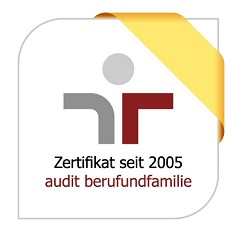Postdoc in Cancer Epigenomics
Kennziffer: 2025-0031
- Heidelberg
- Full-time
- Cancer Epigenomics

„Forschen für ein Leben ohne Krebs“ – das ist unsere Aufgabe am Deutschen Krebsforschungszentrum. Wir erforschen, wie Krebs entsteht, erfassen Krebsrisikofaktoren und suchen nach neuen Strategien, die verhindern, dass Menschen an Krebs erkranken. Wir entwickeln neue Methoden, mit denen Tumore präziser diagnostiziert und Krebspatient:innen erfolgreicher behandelt werden können. Jeder Beitrag zählt – ob in der Forschung, in der Administration oder der Infrastruktur. Das macht unsere tägliche Arbeit so bedeutungsvoll und spannend.
The German Cancer Research Center is seeking for the next possible date a
The Division of Cancer Epigenomics (https://www.dkfz.de/en/cancer-epigenomics), headed by Prof. Dr. Christoph Plass, is a dynamic research team focused on understanding epigenetic contributions to carcinogenesis and therapy resistance in solid tumors (lung [1], breast [2], prostate [3]) and leukemia [4] with a focus on state-of-the-art wet lab technologies and computational solutions [5,6]).
1. Llamazares-Prada M, Schwartz U, Pease DF, Pohl ST, Ackesson D, Li R, Behrendt A, Tamas R, Richter M, Muley T, et al: Epigenetic deregulation of IFN and WNT pathways in AT2 cells impairs alveolar regeneration. bioRxiv 2023.
2. Zhang G, Jurinovic V, Bartels S, Christgen M, Christgen H, Kandt LD, Raap M, Klein J, Katzke A-L, Hofmann W, et al: Development and validation of multivariate predictors of primary endocrine resistance to tamoxifen and aromatase inhibitors in luminal breast cancer reveal drug-specific differences. medRxiv 2023.
3. Gerhauser C, Favero F, Risch T, Simon R, Feuerbach L, Assenov Y, Heckmann D, Sidiropoulos N, Waszak SM, Hübschmann D, et al: Molecular Evolution of Early-Onset Prostate Cancer Identifies Molecular Risk Markers and Clinical Trajectories. Cancer Cell 2018, 34:996-1011 e1018.
4. Weichenhan D, Riedel A, Sollier E, Toprak UH, Hey J, Breuer K, Wierzbinska JA, Touzart A, Lutsik P, Bahr M, et al: Altered enhancer-promoter interaction leads to MNX1 expression in pediatric acute myeloid leukemia with t(7;12)(q36;p13). Blood Adv 2024, 8:5100-5111.
5. Scherer M, Singh I, Braun M, Szu-Tu C, Kardorff M, Rühle J, Frömel R, Beneyto-Calabuig S, Raffel S, Rodriguez-Fraticelli A, Velten L: Somatic epimutations enable single - cell lineage tracing in native hematopoiesis across the murine and human lifespan. bioRxiv 2024
6. Kelly K, Scherer M, Braun MM, Lutsik P, Plass C: EpiCHAOS: a metric to quantify epigenomic heterogeneity in single-cell data. Genome Biol 2024, 25:305.
Ihre Aufgaben:
While the genetic components of therapy resistance have been extensively studied in various cancer types, non-genetic, including epigenetic, mechanisms of therapy resistance remain largely unexplored. Multiple mechanisms, including pre-existing persister cells or acquired resistance mediated by cell plasticity, will be tested in experimental model systems and patient-derived material using state-of-the-art single-cell epigenomic technologies.
During this project, the candidate will use existing model systems (iPSCs, cancer cell lines, PDX, genetically engineered mouse models and patient-derived tumor material) to understand epigenetic dysregulation leading to non-genetic therapy resistance. Using CRISPR technology the candidate will investigate common mechanisms of cancer therapy resistance across the different cancer entities studied in the department, including solid tumors (lung, breast, prostate) or leukemia.
Specifically, the candidate will generate bulk (e.g., ACT-seq, ATAC-seq, WGS data) and single-cell epigenomic (scRNA-seq, scATAC-seq, scTAM-seq) data of the model systems with and without therapeutic pressure to understand epigenetic mechanisms of therapy resistance.
Ihr Profil:
We are looking for a highly motivated molecular cancer biologist with a PhD degree who has an interest in cancer research and is able to work in teams with computational scientists.
The candidate should have the following skills:
- Good knowledge in molecular biology with a focus on (epi)genomic profiling
- Experience in CRISPR technologies
- Interest in interdisciplinary research
- Knowledge of epigenomic data analysis is a plus
- Fluency in English, German language skills are not required
Unser Angebot:
- Hervorragende Rahmenbedingungen: modernste state-of-the-art Infrastruktur und Möglichkeit zum internationalen Austausch auf Spitzenniveau
- Vergütung nach TV-L inkl. betrieblicher Altersvorsorge und vermögenswirksamer Leistungen
- 30 Tage Urlaub
- Flexible Arbeitszeiten
- Möglichkeit zur Teilzeitarbeit
- Familienfreundliches Arbeitsumfeld
- Nachhaltig zur Arbeit: Vergünstigtes Deutschland-Jobticket
- Unser betriebliches Gesundheitsmanagement bietet ein ganzheitliches Angebot für Ihr Wohlbefinden
- Entfalten Sie Ihr volles Potenzial: Zugang zum DKFZ International Postdoc Program und dem DKFZ Career Service mit gezielten Angeboten für Ihre persönliche Entwicklung fördern Ihre Talente
Sie sind interessiert?
Michael Scherer
Telefon: +49 6221 42 3309

